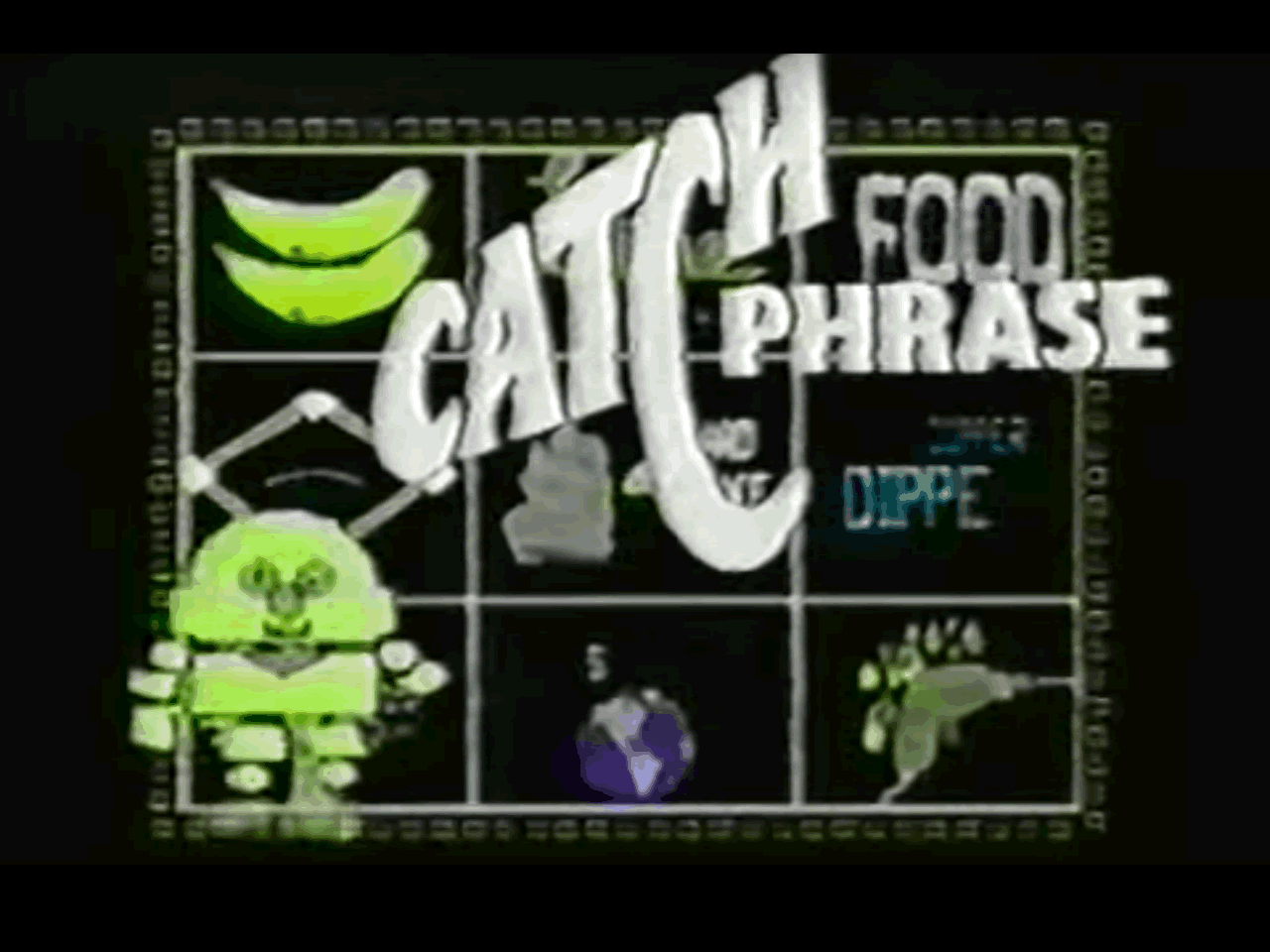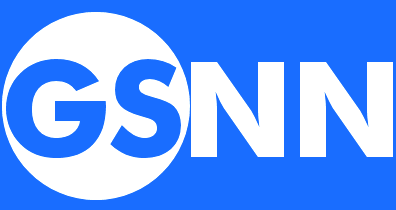What is this catch phrase? You'll find
the answer to this and many more as we play television's most exciting
new game...

SHOW: CATCH PHRASE
AIR DATES: September 16, 1985 to January 10, 1986
CREATOR: Steve Radosh
HOST: Art James
WATCH IT AT: youtu.be/P-G0vri3Ml0
In the 1980s, thanks to the relatively cheap cost of the Mac and the
Commodore 64 and the hit movies like "WarGames" and "Sneakers", everyone
was computer-crazy. And, mind you, this was well before the Internet and
just before Bill Gates stole...er, MIMICKED Mac to make Windows. So
having computers do things was all the rage in the 80s. Well, apparently,
Steve Radosh (who would go on to produce the final year of the latest
incarnation of "Hollywood Squares") thought that it would be a good idea
to use 80s graphics to play "Pictionary" (which, BTW, premiered in '85)
with human opponents. The result was "Catch Phrase", a show that didn't
catch on (pun unintended) in America but became a pretty big hit abroad.
HOW WAS IT PLAYED?
MAIN GAME
Two
contests - a returning champion and a challenger, usually - play a timed
game.
At the start of each round, a contestant (starting with the challenger)
sets a random dollar amount by hitting a button while the screen of nine
amounts (ranging in the first round from $100 to $200 and increasing
with each round) has a flashing screen bouncing about (like "Second
Chance"). Then the contestants watch the screen as a "catch phrase" is
drawn out. For example: a picture of a fly reading a newspaper with an
arrow pointing at said paper means the phrase is "FLYPAPER" A bell
sounds when enough of the phrase has been drawn for the contestants to
buzz in and try to answer. If they answer it right, they add the set
dollar amount to a bank and gets to answer a "Super Catch Phrase". If
they are wrong, the other contestant tries to guess.
Some "catch phrases" included the show's mascot "Herbie the Robot". When
he shows on the screen, what he does is usually key to solving the
puzzle. For instance, if he's blowing on the word "GUN", that equals
"BLOW GUN".
The "Super Catch Phrase" is hidden behind nine squares, one of which is
revealed after the contestant hits the buzzer while a flashing screen
bounces around the squares. There's no penalty for a wrong answer. They
have a few seconds to think before they can answer. A correct answer
wins the round and the money in the bank, which is zeroed out for the
next round. If, after the entire phrase is revealed, neither contestant
gets it right, the money stays IN the bank as a new round starts.
If time expires while a round is still in play, the final "Super Catch
Phrase" is revealed in its entirety for a contestant to buzz-in. If that
contestant is wrong, the other contestant gets a free chance. If neither
get the phrase right, no more money is awarded.
When time expires, the contestant with more money is the champion and
goes on to the bonus round. The loser gets to keep the cash won as well
as getting parting gifts. If a champion wins five days straight, they
get a bonus prize like a boat or a car.
BONUS ROUND
The champion faces a five-by-five grid of squares lettered A through Y.
Behind each one is a "catch phrase" that needs solving. The champion
calls out a letter and the phrase is drawn out before them. They can
guess on the phrase at any time and can guess as often as possible
within time constraints. They can also pass and, if time allows, return
to that one. Guessing a phrase correctly marks the square like a Bingo
board. The object is to get five phrases in a row on the grid within 60
seconds. The middle square ("M") is a more difficult phrase. If the
champ gets five phrases in a row on the board, either horizontally or
vertically but without the "M" phrase, they win a prize worth around
$5000. If they get five in a row WITH the "M" phrase (including
diagonally), they get a prize worth around $10,000. If time runs out,
the contestant wins $200 for each phrase guessed right (or $400 apiece
if the "M" phrase was guessed right).
WHAT WORKED?
I have to admit that it was a VERY thought-provoking game. But, then
again, I was into brain teasers for as long as I could remember. So
watching the "catch phrases" being drawn and trying to figure them out
was awesome to me. This was a true "audience participation" show; the
in-studio contestants AND the folks at home were encouraged to figure
them out...and, for a time, they even allowed people to send such
phrases in.
While quite primitive by today's standard's, the graphics for the
phrases were relatively cutting-edge. A lot of
programming must have been put into whatever computer they used to make
the phrases come to life.
This was Art James' final hosting gig before sticking to announcing and
PART-time hosting. And, like the shows he did before, he did it like a
champ. Bit of a shame that the show was syndicated and lacked a network
budget; I'm sure he wanted to go out with a bang.
WHAT DIDN'T WORK?
The thing that made it so exciting to me is also what made it so
frustrating to me. Sometimes I know the phrases far before the
contestants do...and, on the rare occassion they didn't get it, I was
like, "What the hell, man? That was easy!!" And, when they get a phrase
that I didn't get,
I was like, "Oh, of COURSE! How STUPID can I get?!" So, yeah, it was a
mix of pleasure and pain for me. For those watching - most whom I'm sure
couldn't get any phrases right - it was NOT as fun, I'm sure.
While the bonus round had "70s Jeopardy!" written all over it, they did
themselves NO favors making the "M" phrase harder and worth a better
prize. No sooner did the host say to start then the champ shouted
"M"...and nine times out of ten, they'd GET it. They should've never
done that; just make all the phrases the same difficulty and tell 'em
five in a row gets you a $5000 prize.
WOULD IT WORK TODAY?
It IS working today...just not in America. The UK and Vietnam still have
versions of it playing on TV. And, with computer graphics being a) much
better on the eyes and b) much easier to program, why WOULDN'T it work
back in the States? If "Idiotest" can be a big GSN hit, why can't
something quite similar?
NEXT TIME: I'm
President-elect and I approve this game show...
Chris Wolvie makes Herbie look like a super-human
Follow him on Twitter @ChrisWolvie and
e-mail him at chriswolvie@yahoo.com |


